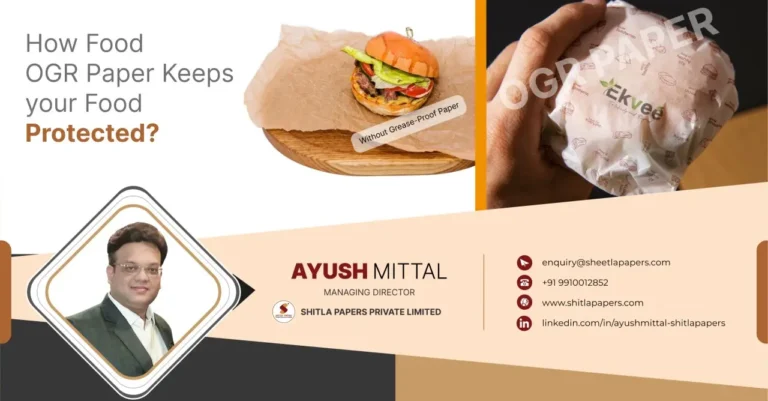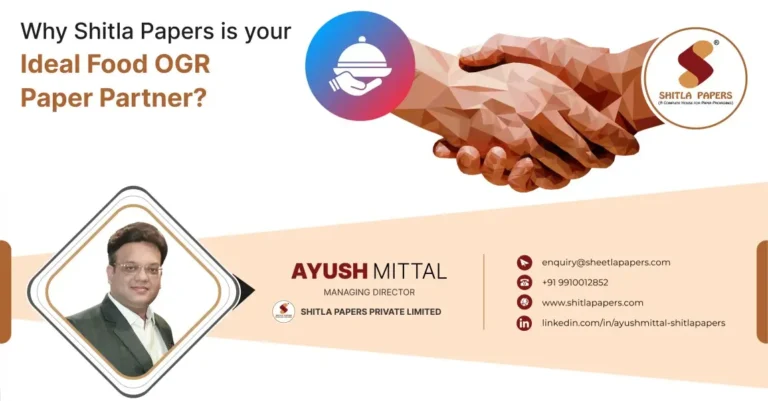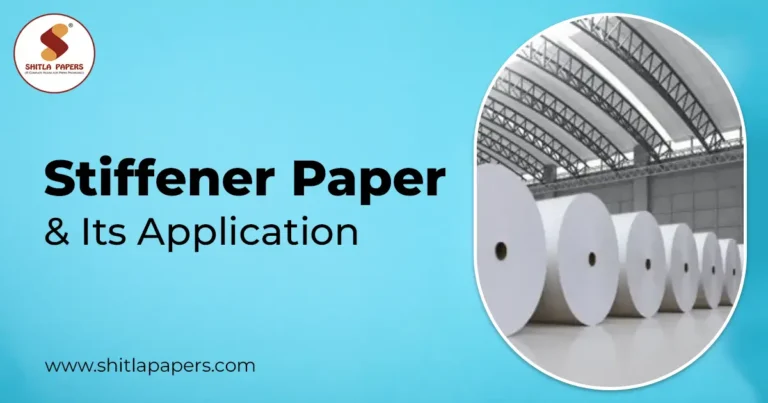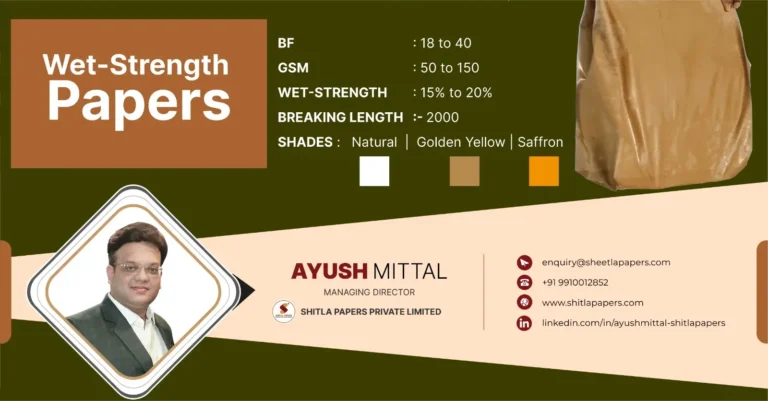The Future of Sustainable Paper Packaging: Trends and Innovations
Introduction
In today’s world, where environmental concerns are at the forefront, the need for sustainable packaging solutions has become increasingly important. As businesses strive to reduce their ecological footprint, a shift from plastic packaging to sustainable alternatives, such as paper packaging, has gained momentum. This article will explore the latest trends and innovations in Future of sustainable paper packaging and how they can benefit businesses.
Future of Sustainable Paper Packaging: An Overview
Future of sustainable paper packaging refers to the use of eco-friendly materials and practices in the production of paper-based packaging solutions. Unlike traditional packaging materials like plastic, sustainable paper packaging offers several environmental benefits. It is biodegradable, recyclable, and renewable, making it a more sustainable choice for businesses and consumers alike. By transitioning from conventional packaging to sustainable alternatives, companies can significantly reduce their impact on the environment.
Current Trends in Sustainable Paper Packaging
- Use of recycled and FSC-certified paper: Many businesses are opting for recycled paper and paperboard, as well as sourcing materials certified by the Forest Stewardship Council (FSC). These initiatives help minimize deforestation and promote responsible sourcing practices.
- Minimalist and eco-friendly designs: Brands are embracing minimalist packaging designs that use fewer resources and generate less waste. Simple, clean designs not only reduce material consumption but also convey an eco-conscious image to consumers.
- Biodegradable and compostable coatings: Innovations in coatings have enabled the development of biodegradable and compostable options for sustainable paper packaging. These coatings provide necessary functionalities such as moisture resistance and barrier properties while being environmentally friendly.
Innovations in Sustainable Paper Packaging
- Nanotechnology for enhanced strength and barrier properties: Nanotechnology has opened up new possibilities in improving the strength and barrier properties of sustainable paper packaging. Nanomaterials can be incorporated into paper fibers, enhancing their durability and resistance to moisture and grease.
- Incorporation of renewable materials like bamboo and wheat straw: To further enhance the sustainability of paper packaging, renewable materials like bamboo and wheat straw are being used as alternatives to conventional wood pulp. These materials grow rapidly and require fewer resources, making them highly sustainable options.
- Smart packaging with embedded sensors for freshness monitoring: Advances in technology have led to the development of smart packaging solutions. These packages include embedded sensors that monitor factors like temperature, humidity, and freshness, helping businesses and consumers reduce food waste and ensure product quality.
The Role of Sustainable Paper Packaging in Businesses
Businesses are increasingly recognizing the importance of sustainable packaging for several reasons:
- Consumer demand for eco-friendly packaging: Consumers are becoming more environmentally conscious and actively seek products packaged in sustainable materials. By adopting sustainable paper packaging, businesses can meet consumer expectations and gain a competitive edge.
- Enhanced brand image and customer loyalty: Sustainability initiatives resonate with consumers and can positively impact a brand’s image. By demonstrating a commitment to eco-friendly practices, businesses can build trust and loyalty among customers.
- Regulatory compliance and cost savings: Governments worldwide are implementing stricter regulations on packaging waste. By adopting sustainable paper packaging solutions, businesses can ensure compliance while potentially reducing costs associated with waste management and disposal.
Challenges and Limitations
While future of sustainable paper packaging offers numerous benefits, there are also challenges and limitations that need to be addressed:
- Cost considerations and scalability: Sustainable packaging solutions, including paper packaging, may initially have higher costs compared to conventional alternatives. However, as demand and production volumes increase, economies of scale can help reduce costs.
- Availability of sustainable paper sources: The availability of sustainably sourced paper and other materials is crucial for the widespread adoption of sustainable packaging. Businesses need reliable access to these resources to meet their sustainability goals.
- Addressing the needs of specific products: Some products, such as fragile or perishable items, require specialized packaging solutions. Developing sustainable paper packaging options that meet these specific needs can be a challenge and requires further research and innovation.
Case Studies: Successful Implementation of Sustainable Packaging
Several businesses have successfully implemented future of sustainable paper packaging solutions, yielding positive outcomes:
- Company A: By switching from plastic to sustainable paper packaging, Company A reduced its carbon footprint by 30% and experienced a 15% increase in customer satisfaction.
- Company B: Through the use of minimalist designs and recycled paper, Company B achieved a 20% reduction in packaging material usage and saved $100,000 in packaging costs annually.
Future Outlook and Opportunities
The future of sustainable packaging looks promising, with opportunities for continued growth and innovation:
- Continued innovation and research in future of sustainable paper packaging: The industry will witness ongoing research and development efforts to further improve the sustainability, functionality, and cost-effectiveness of paper packaging.
- Collaboration among stakeholders for a circular economy: Collaboration between businesses, governments, and consumers is crucial to creating a circular economy where packaging materials are reused, recycled, or composted, minimizing waste and maximizing resource efficiency.
- Potential for market growth and expansion: As consumer awareness of environmental issues continues to rise, the demand for sustainable packaging will grow. This presents businesses with opportunities to enter new markets and increase their market share.
Conclusion
Sustainable paper packaging is the future of environmentally friendly packaging solutions. By embracing current trends and innovations in sustainable paper packaging, businesses can not only reduce their environmental impact but also enhance their brand image, meet consumer expectations, and potentially achieve cost savings. With continued research and collaboration, the future holds even more promising opportunities for sustainable packaging solutions.
FAQs
- What is sustainable paper packaging?
- Sustainable paper packaging refers to the use of eco-friendly materials and practices in the production of paper-based packaging solutions. It offers environmental benefits such as biodegradability, recyclability, and renewability.
- Why is sustainable paper packaging important for businesses?
- Sustainable paper packaging helps businesses meet consumer demand for eco-friendly solutions, enhances brand image, ensures regulatory compliance, and potentially reduces costs associated with waste management.
- What are some current trends in sustainable paper packaging?
- Current trends include the use of recycled and FSC-certified paper, minimalist and eco-friendly designs, and biodegradable and compostable coatings.
- How can innovations in sustainable paper packaging benefit businesses?
- Innovations such as nanotechnology for enhanced strength, incorporation of renewable materials, and smart packaging with embedded sensors can improve the functionality and sustainability of paper packaging, leading to increased customer satisfaction and reduced waste.
- What are the challenges in adopting sustainable paper packaging?
- Challenges include cost considerations, scalability, availability of sustainable paper sources, and addressing the specific needs of certain products.





